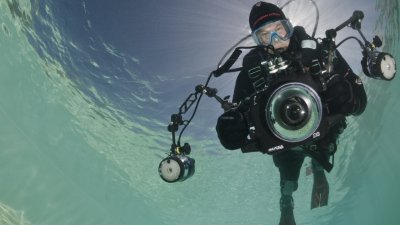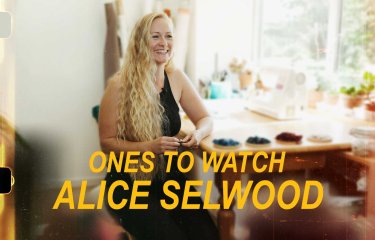Graduate finalist in Ocean Photographer of the Year
03 September 2024
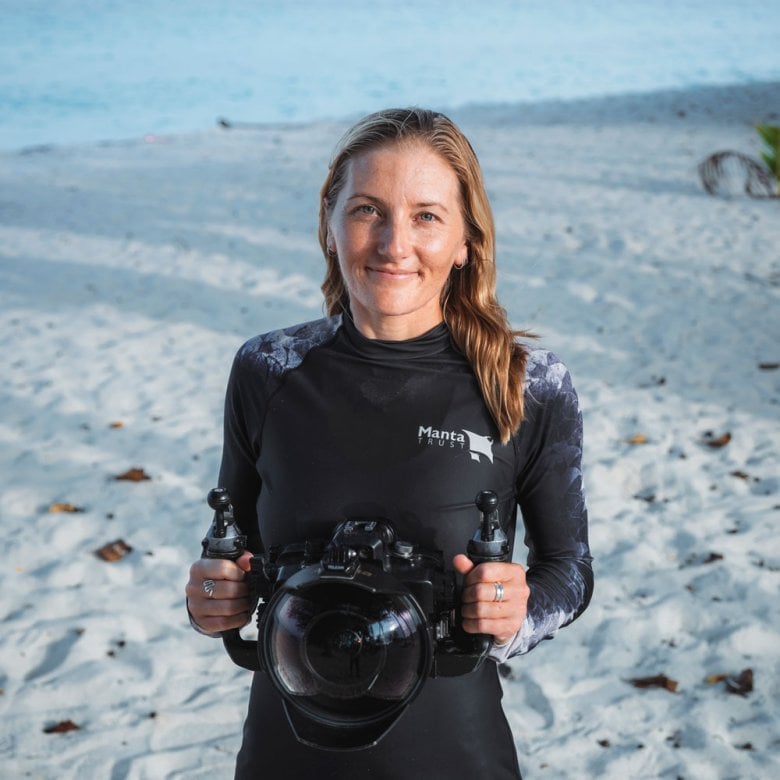
Marine and Natural History Photography (MNHP) BA alumna Jasmine Corbett has gained some of the highest industry recognition for photographic impact for her photo of drying shark fins in Java, Indonesia.
The Ocean Photographer of the Year (OPOTY) awards are run by Oceanographic magazine and celebrate images from all disciplines and experience levels. A total of 118 images are shortlisted every year and are published on digital platforms, in print, and in-person exhibitions.
Jasmine’s finalist image, which featured in the Conservation (Impact) Photographer of the Year award, shows a number of shark fins drying on terracotta roof tiles at a shark processing unit. Shark fins are in high demand in Asian medicine, and it’s estimated that as many as 73 million sharks are killed every year, pushing many species to the brink of extinction.
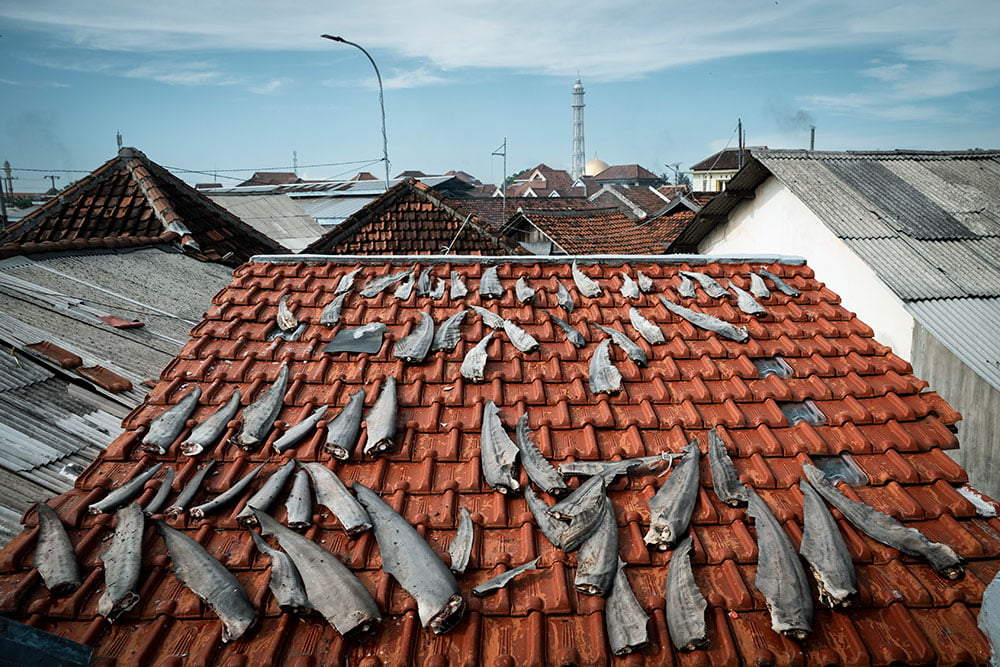
We caught up with Jasmine to find out more about her award, her time on the MNHP course at Falmouth, and her plans for the future.
Talk us through your trip to Java which led you to get your award-winning photos.
This image was captured during an assignment documenting shark and ray fisheries in Java with Mobula Project Indonesia and the Manta Trust. I was invited to a shark processing unit hidden between market stalls and homes, where shark fins are dried. This access was only possible thanks to the trust built over years between the project and the local fishers they work hard to support.
The high demand for shark fins in traditional Asian medicine, coupled with dwindling fish stocks, sadly pushes many fishers to target these vulnerable species to sustain their livelihoods. Learning about the low pay, gruelling hours, and harsh conditions these fishers endure was heartbreaking. These are kind, caring family men, just trying to get by and provide for their loved ones. I learned more from them than I have from many scientists.
These fishers are often unfairly vilified for their work, which they are driven to due to depleting fish stocks and an unfair economic system. They earn mere pennies while the traders and middlemen profiting from the shark and ray trade reap huge profits. The real responsibility lies with consumers, whose demand keeps this trade alive.
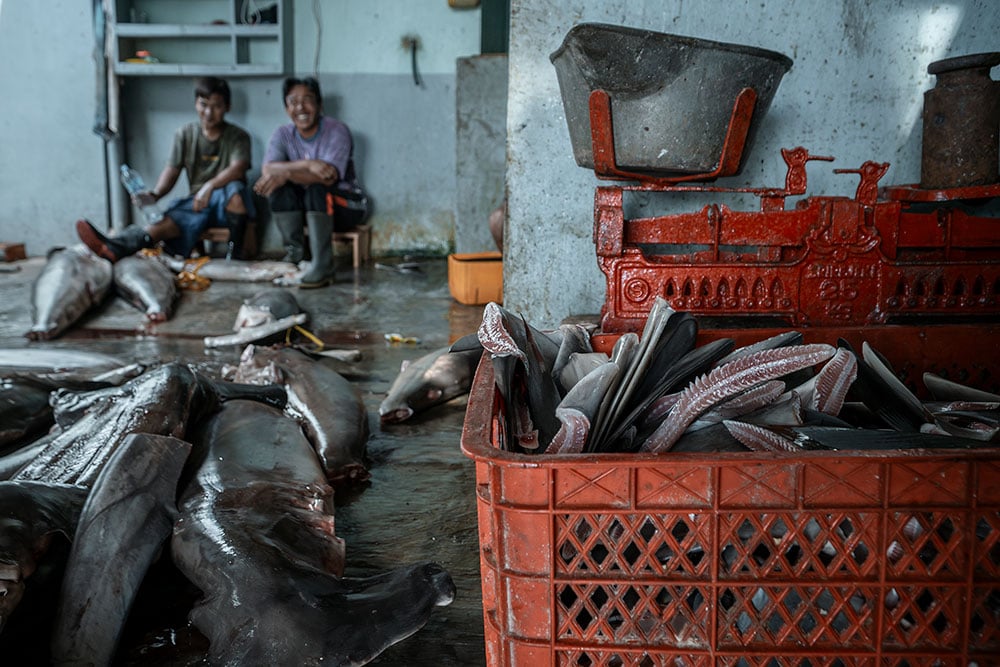
It's crucial to see the bigger picture and understand the deeper reasons why this trade persists. I’m super passionate about the Mobula Project Indonesia; the team is running some incredibly vital work in Indonesia, and it is really inspiring to see an all-Indonesian team pioneering locally-led conservation.
How did you feel when you heard you’d won the award?
While I have been fortunate to receive awards for my photographic work in the past, this recognition holds a unique place in my heart. The OPOTY awards are a prestigious competition that I have admired and followed for years. Since the early days of my photography journey, I’ve always dreamt of having my work featured alongside the world's best ocean photographers. When I found out that my image was selected as a finalist, it was a surreal moment—to see my work placed among such incredible and inspiring photography from artists I've long admired was very special. This recognition isn’t just an award to me; it’s a milestone that affirms the passion and dedication I’ve poured into my craft over the years. It inspires me to continue exploring the beauty of our oceans and sharing it with the world.
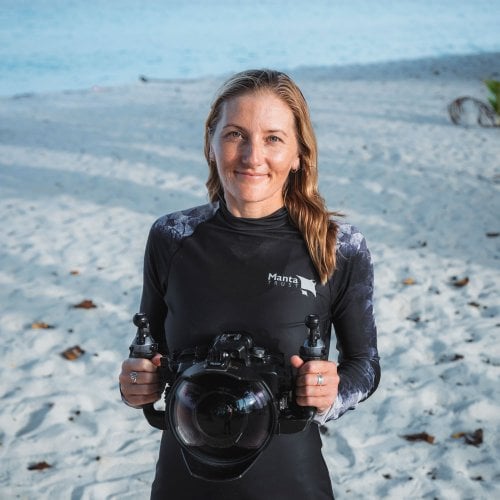
"If you're interested in nature and conservation storytelling, this course is an invaluable tool. It equips you with the skills to engage and inspire those who might not have an inherent connection to the environment or the challenges it faces."
- Jasmine Corbett
When did you start getting interested in photography?
Although I was raised in a city, I always longed for the ocean. I spent countless hours engrossed in ocean nature documentaries and took up any opportunity to visit the coast. Whilst I always dreamed of being a photographer, I initially believed my options were limited to commercial or wedding photography, neither of which truly resonated with me. However, everything changed when I took my first scuba diving course at the age of 18—it was a transformative experience that captivated me completely. From that moment onward, I knew that my future would revolve around diving and the ocean. I took a leap of faith and pursued a degree in Marine and Natural History Photography and haven’t looked back since!
You graduated in 2016—what was the most important thing you learnt on the course?
The most important lesson I've learned on this course is the power of networking. The wildlife and conservation media community is relatively small but incredibly welcoming. Despite this openness, the opportunities in this field can be highly competitive. Therefore, building and nurturing connections within the industry is essential. By engaging with others, sharing my work, and demonstrating my skills, I've found that networking is crucial not only for gaining recognition but also for fostering collaborations that can lead to meaningful conservation outcomes. It's not just about what you know, but who you know and how you can support each other's efforts to make a difference in the world.
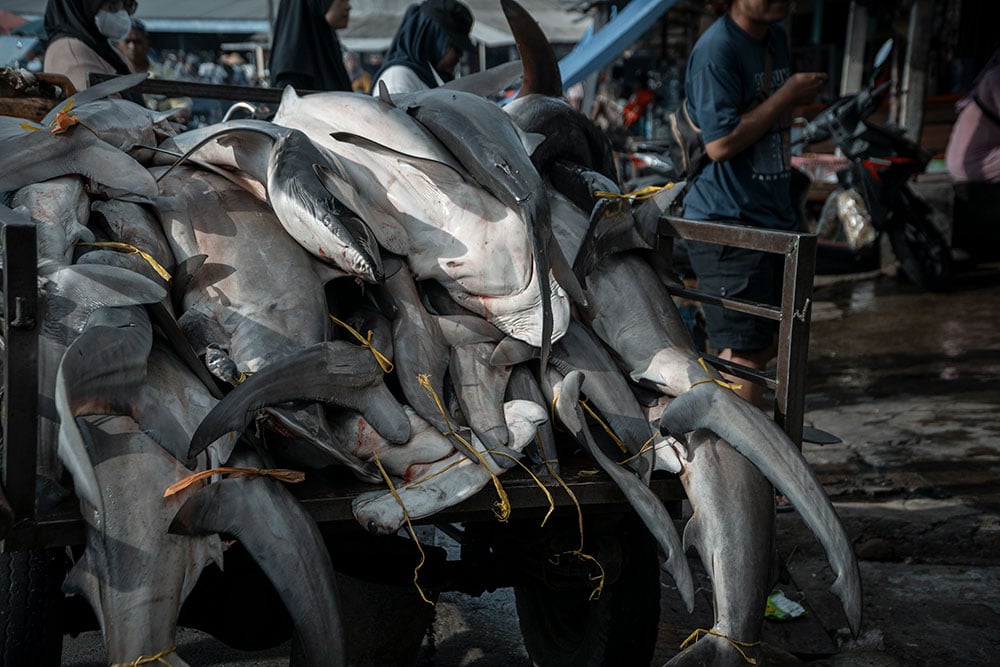
Who would you recommend the MNHP course to?
I would recommend this course to anyone who is passionate about using media to make a positive impact on the planet. If you're interested in nature and conservation storytelling, this course is an invaluable tool. It equips you with the skills to engage and inspire those who might not have an inherent connection to the environment or the challenges it faces. Storytelling in this context serves as a crucial bridge, translating complex scientific concepts into compelling narratives that resonate with the general public. For anyone who wants to contribute to conservation efforts by raising awareness and driving change through media, this course is a perfect fit.
What are your plans for the future?
As the Media and Communications Manager at the Manta Trust, I'm fortunate to be involved with a network of around 30 affiliate projects spread across the globe. To date, I've only documented a few of these projects, but my long-term goal is to visit all of them. By doing so, I aim to gather vital content that will support their education and fundraising initiatives. This, in turn, will help increase awareness and bolster support for their critical conservation efforts. The more we can share their stories and successes, the more we can inspire others to join in protecting our oceans and the incredible species that inhabit them.
External links
Instagram: @jasminecorbettphoto
Facebook: Jasminecorbettphotography
Website: Jasminecorbettphotography.com
